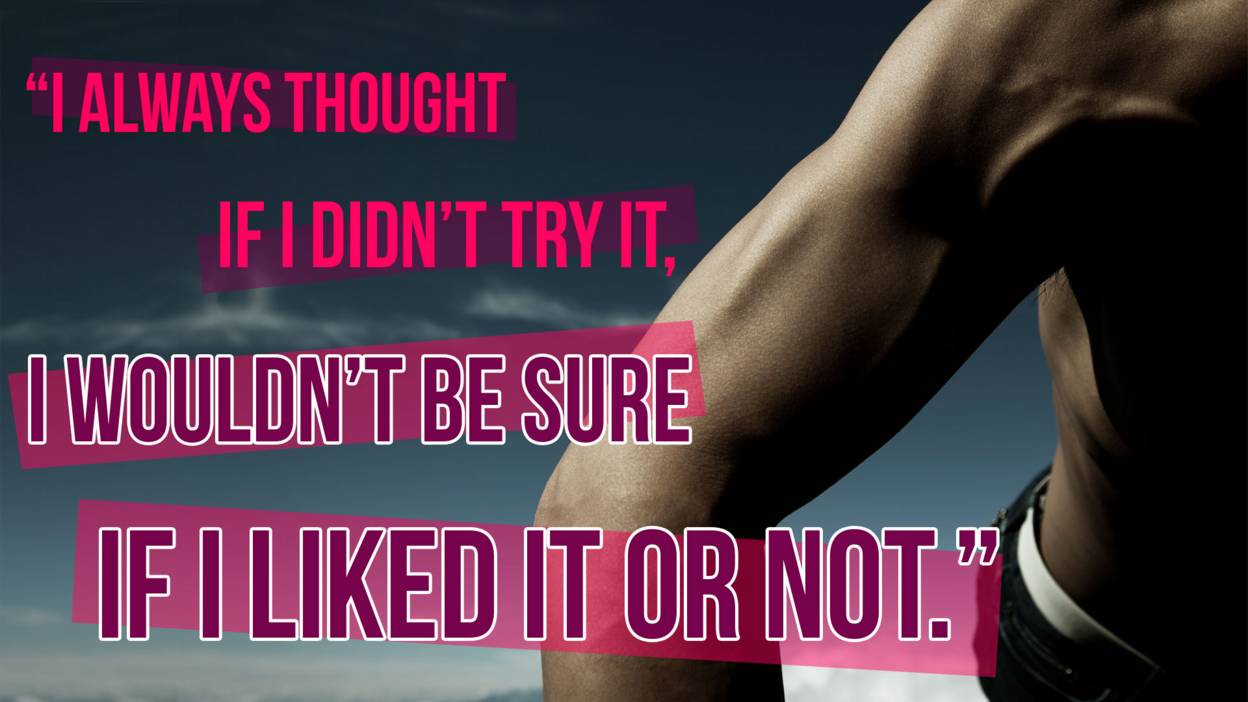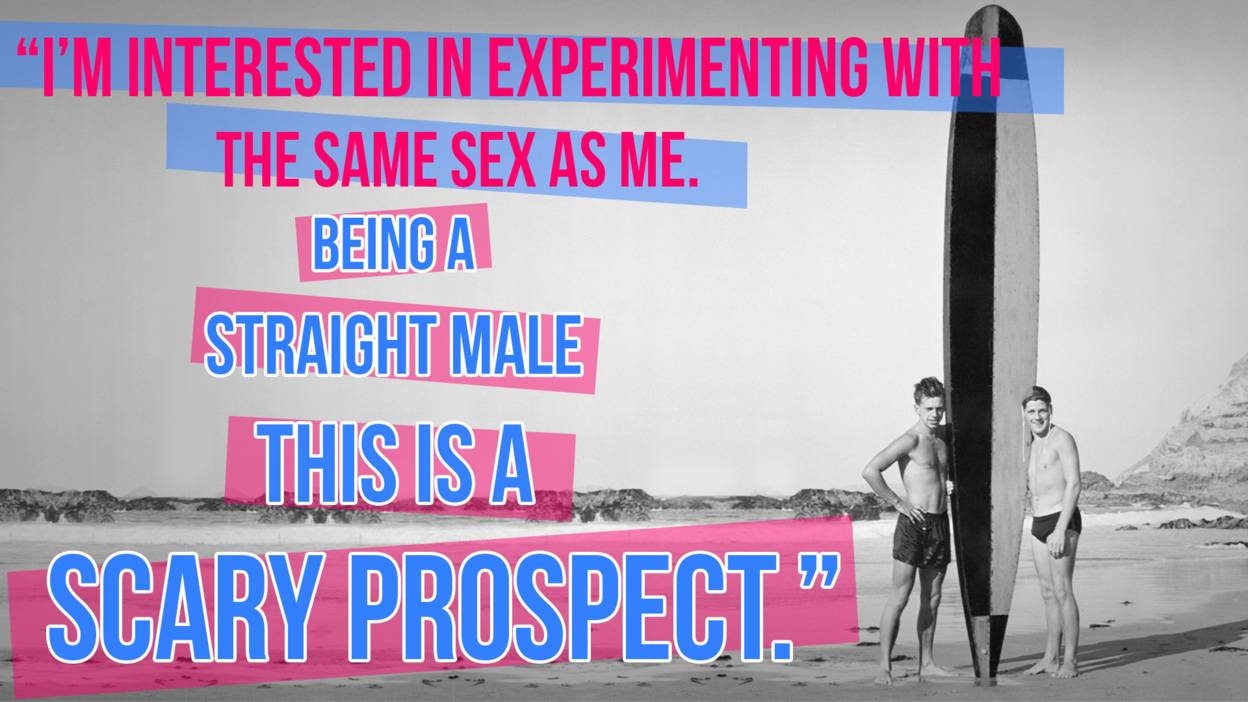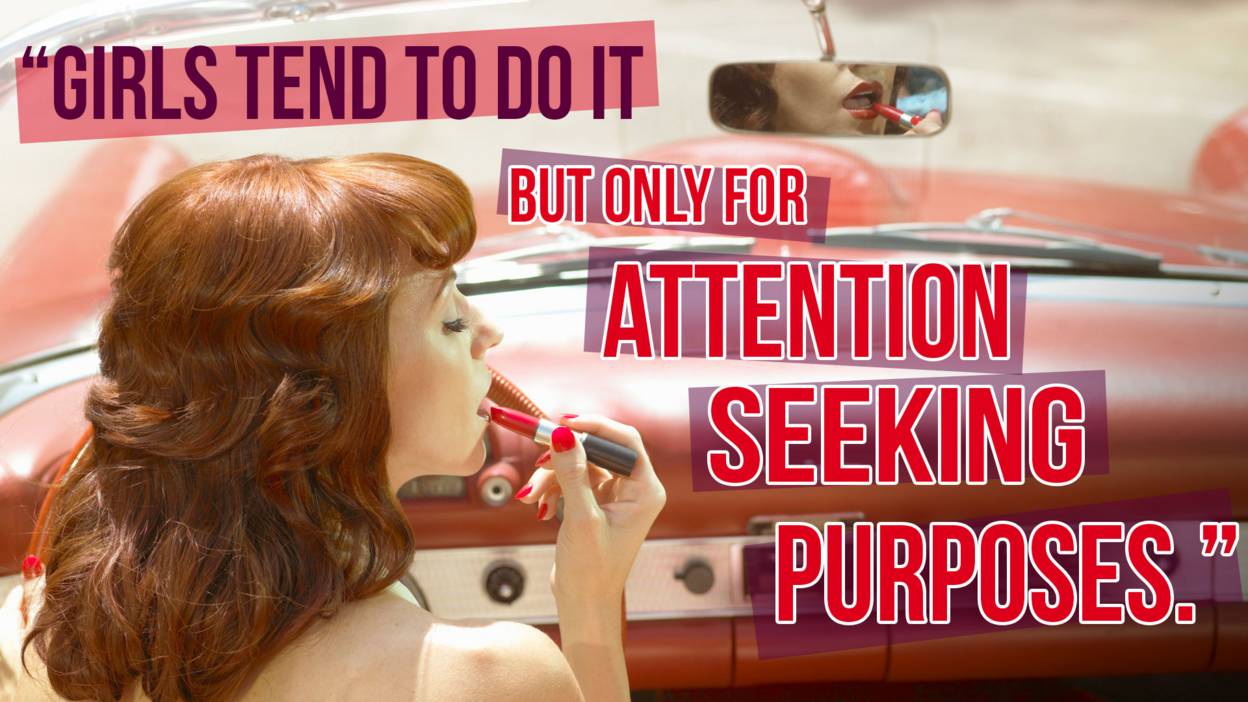It Hands Over the Hersheyã¢â‚¬â„¢s or It Gets the Hose Again
When it comes to sexuality, at that place'southward never been a more heady fourth dimension to be alive. Direct, gay, pansexual, asexual, transsexual, hetero-flexible, bisexual; the countless list of sexual identities surely indicates society is heading in an e'er-more inclusive direction, right? Mayhap we're finally moving towards a time where people are less afraid to live a life that reflects who they actually are.
Yet there are still some social barriers that refuse to budge - particularly for those people who aren't entirely sure of their own sexuality.
Sexuality is oftentimes described as a spectrum; some people identify as entirely directly and others as entirely gay. However many people lie somewhere in that sizeable grey area between the two, and information technology seems that more young people than ever are realising they are in that number: non identifying as bisexual, nor identifying as 100% hetero either. In a recent study, when asked to place themselves on a 'sexuality scale', of the 18 to 24 year olds participating, 1 in ii chose something other than 100% heterosexual. This figure contrasted vastly from the remainder of the general UK population, of which 72% identify as exclusively heterosexual. In curt, this written report would suggest young people are feeling less and less straight.
Some other study looked at same-sex experiences in Americans between 1990 and 2014. It non only found that people'southward acceptance of same-sex relationships had quadrupled during this time, but also that aforementioned-sex sexual action had roughly doubled - for women and men. By the time of the concluding survey, 7.five% of men aged betwixt eighteen to 29 reported a gay sexual feel and 12.2% of women in the same age subclass reported a lesbian experience.
 Getty Images
Getty Images
I wanted to get some showtime hand views on same-sex experimenting from people who have tried it, only it'southward clearly a topic that people still feel uncomfortable talking virtually. I reached out to some straight-identified people who take sexually experimented, only plant people reluctant to talk. So I did what a lot of people do and went online. Information technology seems that the anonymity of an online persona, in a community of agreeing people - such every bit a forum - is comforting plenty for some people to vocalise their experiences.
1 forum user had written, "I would say I'm straight, but I exercise have this fantasy of playing around with a guy" whilst another admitted, "I'm non homosexual only I would definitely endeavor it." Those are brave statements information technology would seem.
Because, despite the meaning shift in numbers of younger people identifying as something other than heterosexual, there still seems to be one expanse of sexual practice where the shift in attitudes are lagging behind - men experimenting with men. Possibly i of the reasons the men I reached out to didn't want to talk to me is the common belief that information technology's somehow less acceptable for men to attempt out same-sex activity than it is for women. One forum user reinforced this theory past writing, "It's mostly more acceptable for women to explore their homosexual urges than vice versa."
 Getty Images
Getty Images
And so where exercise these preconceptions come from? One thought looks at the very fundamentals of both masculinity and femininity.
Dr. Jane Ward, author of Not Gay, tells me, "Straight people accept these socially acceptable alibis in order to explicate same-sex activity sexual behaviour. The alibis that are available to men are different to the ones available to women, and are consistent with the style we call up about masculinity and femininity.
Femininity is traditionally viewed as a spectacle, or a testify. Straight-identified women get to have sexual contact with some other woman every bit long as it is a show for men. Often same-sexual activity sexual contact betwixt men will accept a form of hyper-masculinity and joking around. People tend to think that's just boys being boys; it'southward nearly hierarchy, it'due south near authorisation, it's near initiation into manhood."
Dr. Ward explained to me that straight men would be more than likely to have a relationship with a bisexual woman than women are with a bisexual homo. I wanted to come across if this was true. I went dorsum to my anonymous friends online. One user had written, "Women definitely don't have the same reaction to their boyfriends having gay sex equally guys take to their girlfriends having lesbian sex." Another user'south mail offered an explanation as to why this may be the instance, claiming, "A lot of people seem to remember that if you're a guy who's e'er been sexually interested in men, then you're gay." Mayhap what this boils downwards to is that a human who has had a same-sexual practice see may exist branded anything from 'gay' to 'in denial', unlike a woman who will near be celebrated for doing the very same affair?
 Getty Images
Getty Images
Why would this be the case? Dr. Ward argues that it is largely downwards to both our culture and to the media.
"There are many examples of women kissing each other in non-stigmatised means in the media. Wait at the Madonna and Britney Spears buss. The images are everywhere and there are no consequences to that. In fact, it's celebrated because information technology's desirable to men.
Nosotros've seen that same-sexual practice eroticism for direct women over and over again in the media. It'southward non that it'due south inherent to women. Information technology's that culture has changed such that it has given women permission in a fashion that it hasn't given permission to men."
Perhaps the reason same-sex experimentation remains more controversial for men than women tin can exist put downwardly to the fact that, for whatever reason, men ofttimes feel ashamed or guilty when faced with a desire to try a few new things out. Simply if social acceptance is moving forward for such a large number of people on the same sexuality spectrum, shouldn't it too for all the people in the centre, men included?
There are events such as Bivisibility Day(which takes place every year on 23 September) which tin only help increase awareness, merely what else could help? More male celebrities to open up about their aforementioned sexual activity dalliances - in the same mode Miley and Madonna have? Or perhaps a rather more formal approach and sex-ed in schools to become more inclusive? The reality is that probably every expanse needs to evolve - the media, didactics and equally we've all become then obsessed with celebrities, a Hollywood star or two to assist along the way. Until these things happen it's likely nothing will change and bi-phobia will continue to rule.
Source: https://www.bbc.co.uk/bbcthree/article/3e75b380-f622-4345-a383-4f948fc1013c